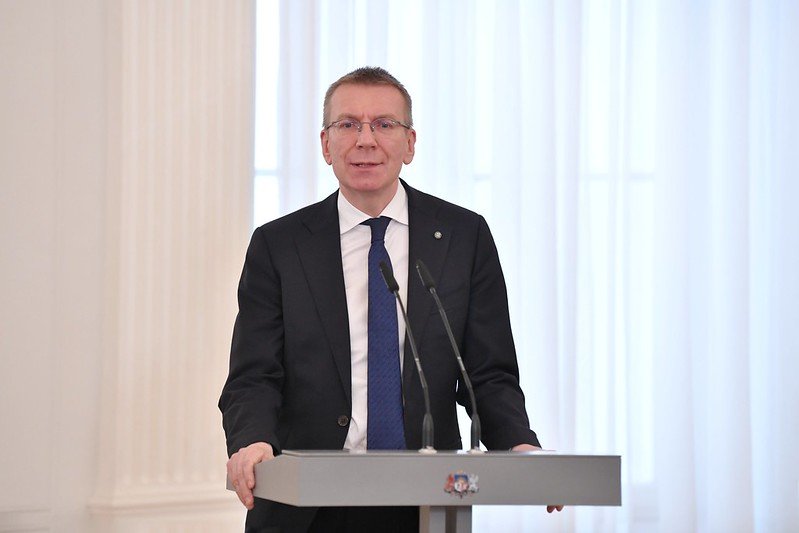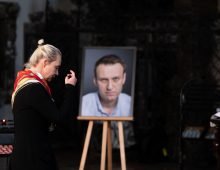Public election debates must be held in the Latvian language, President Edgars Rinkevics said on social media Monday.
The president expressed his position, commenting on the public service broadcaster’s plan to organize a series of televised debates in Russian ahead of the upcoming European Parliament elections. In Rinkevic’s view, the current discussion is a continuation of a public debate started in 2023 on the transition of Latvian Television (LTV), Latvian Radio and Lsm.lv to only producing Latvian-language content from 2026.
In Rinkevics’ opinion, the discussions on this issue have lost the focus. In his words, the first topic of discussion is the use of the official language and minority languages in public processes, the second topic is the independence of the media, especially the public service media, and the third – how to reach out more effectively to those still in the “Kremlin propaganda orbit”.
The president argues in his post that according to the Constitution, the language of public and political processes and the official language is Latvian, hence also public election debates should be held in Latvian. Rinkevics notes that “in the past, many things have been done in Russian”, “but… circumstances change, and the opinion and mood of a significant part of society changes. What was once acceptable is no longer acceptable and vice versa”. The Russian invasion of Ukraine has changed the situation especially rapidly, the president said.
At the same time, he does not rule out minority languages also being be used for communication, as provided for by the Constitution and the law, but “it is necessary to keep in mind that there is more than one minority in Latvia”.
Regarding the public media and editorial independence, the president is confident that the journalists working there are “professional and patriotic”. Their contribution to the strengthening and development of the country’s democracy is invaluable. “All the ranting about traitors, enemies of the people, the fifth column, Kremlin henchmen is absolutely unacceptable and reprehensible. Threats and calls for physical violence that are punishable by law. It is not easy to safeguard editorial independence,” the president said in the post.
“At this point I would like to see a calm, factual and practical explanation of the editorial choice regarding the EP candidates’ debates in Russian on LTV and lsm.lv. There are several questions. Has the effectiveness of the Russian-language debates of the previous Saeima and EP elections been analyzed, has the intended target audience been asked in the form of research whether it is useful for them, whether there is interest,” the president said.
As reported, a controversy has erupted in the public sphere over whether it is acceptable to organize debates on the EP in Russian in the public media. This week, the State Language Centre issued a statement that it does not support the idea of the Latvian public television (LTV) to hold the EP pre-election debate in Russian, as it considers that such an idea contradicts the status of the official language in the Constitution and its role in the integration of society.
LTV reacted to this by appealing to the Justice Ministry to clarify its public accusations about LTV’s intention to organize the EP pre-election debates also in Russian, as it considers this an attempt to influence the editorial decisions of the public service media.
According to LTV, the State Language Center does not understand how pre-election campaigning, as defined by the law, differs from pre-election broadcasts. The media representatives explained that the pre-election debates are not pre-election campaigning, but content about the EP elections.
Public Electronic Mass Media Council (SEPLP), for its part, pointed out that LTV’s choice to broadcast the pre-election debates in Russian does not violate laws, regulations, public service guidelines and the annual plan.
At the same time, SEPLP calls on LTV to carefully assess the broader context, internal and external factors in order to respect and reconcile in its activities the essence of the Constitution, the SEPLP law and the provision of a full and quality democratic participation process for all those involved in the EP elections – candidates and voters.
Source: BNS
(Reproduction of BNS information in mass media and other websites without written consent of BNS is prohibited.)


















